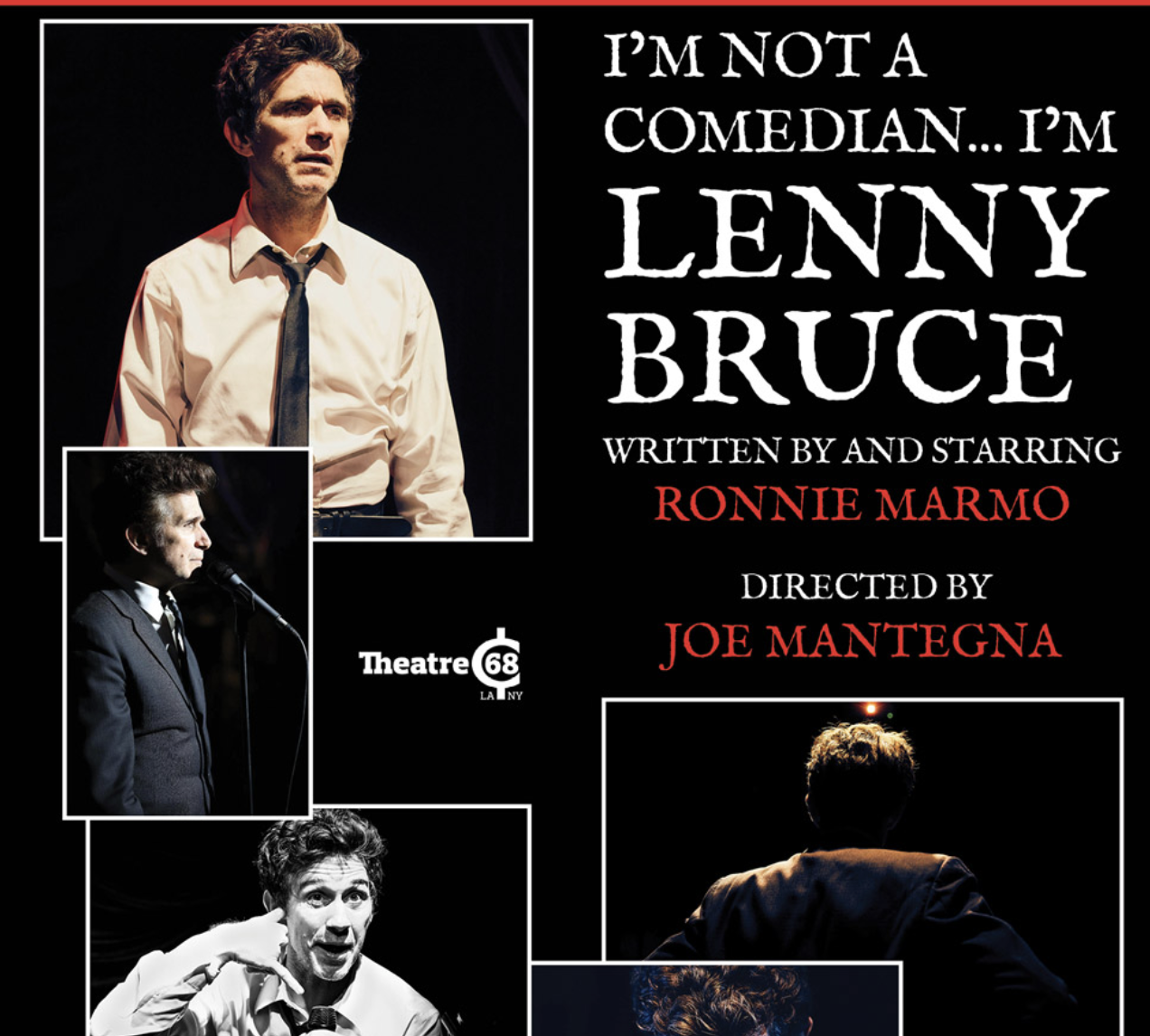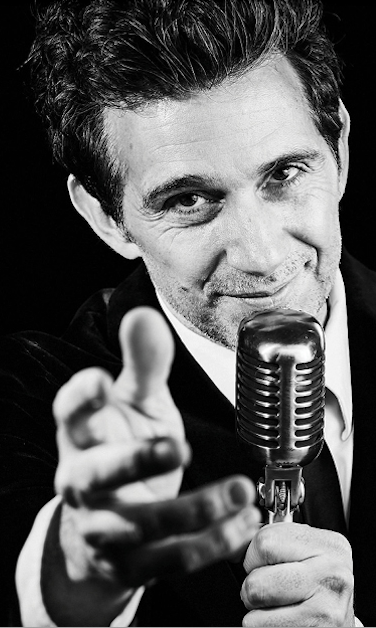Champion for the Freedom of Speak – I’m Not a Comedian… I’m Lenny Bruce
By Sue Weston and Susie Rosenbluth, Two Sues on the Aisle
In the 1950-60s, an act that included curse words, or jokes about sex or religion was considered vulgar and could lead to an arrest for obscenity. An infraction Jewish-born Lenny Bruce became very familiar with. Born in 1925 on Long Island, Leonard Alfred Schneider, became famous for his stand-up routine that openly, in almost stream-of-consciousness dialogues explored his views on moral and social attitudes. In 1947 he changed his name to Bruce. Lenny Bruce is a legendary comedian ranked number three of all time below Richard Pryor (1st) and George Carlin (2nd) both of whom considered him a big influence.
“I’m Not a Comedian… I’m Lenny Bruce”, is a one-man show written by and starring Ronnie Marmo, that provides a retrospective of Bruce’s life in 90 minutes. It begins and ends with Bruce’s untimely death of a drug overdose in 1966 focusing attention on his addiction, which is why some of the proceeds from this performance go to the Lenny Bruce Foundation to help provide treatment for people with drug and alcohol addiction.
The show is an intricate patchwork of routines from Bruce’s repertoire brought to life by Marmo’s, flawless performance mirroring Bruce’s mannerisms, speech, and tone. Physical traits his hair, hitching up his pants, straightening his tie, leaning on his microphone, and dropping the last words even though he is using a microphone. Marmo’s portrayal feels familiar because Bruce was a character on The Marvelous Mrs. Maisel a popular Netflix series, which provided context for many viewers. By focusing on his eccentricities and his unflinching commitment to fighting for freedom of speech all the way to the Supreme Court, and his overindulgences in the pleasures of drugs, sex, and applause from the audience. His first experience as an MC foreshadows his indulgent behavior, comparing the audience’s applause to the high from morphine addicts, and the rushes that he comes to crave.
Segments of the performance are a nightclub act, where the audience is engaged, and Bruce asks questions about their sexual behavior. In the performance we attended many participated openly, but it made us wonder how these questions would have been received in the 1960s.
Bruce fought for the freedom to speak, without censorship, in a way that does not excite violence. It seems our legal system has lost sight of this principle, permitting hatred and destructive behaviors to become cultural norms. He questions the media’s ability to spin and influence perception, showing a picture in Life Magazine of President Kennedy’s assassination and asks if Jackie Kennedy climbing up the back seat of the car to the top of the trunk is trying to help or escape. His outrage and frustration with the media’s singular focus is still an issue, spreading misinformation and shifting public opinion to their point of view. It was clear to us, that though the issues have changed, the media retained its ability to control public opinion.
Still Relevant Today
Many of the issues Bruce commented on are still relevant today religion, racism, immigration, gender inequality, sexual identity, and the criminal justice system. He fought to have the right to share his opinions and for his right to use vulgar language with a paying audience, likening it to a woman’s right to perform risqué acts in a club without penalty. But this did not sway the judge, although in 2003 his conviction for obscenity changes was posthumously pardoned.
Over the course of the performance, Bruce seems to become physically, and mentally worn out from fighting the legal system. With his life falling apart, he turns to drugs, leaving his daughter to be raised by his mother. Could an intervention have placed him on a healthier trajectory?
Great Performances
This is just one of the many provocative and inspiring performances at the New Brunswick Performing Arts Center (NBPAC). NBPAC hosts several New Jersey resident companies including the American Repertory Ballet, Crossroads Theatre Company, George Street Playhouse, and Rutgers’ Mason Gross School of the Arts. This newly renovated theater is the home for live theater in Central New Jersey.
I’m Not a Comedian… I’m Lenny Bruce” at the George Street Playhouse was an intimate evening with a facsimile of an icon of the comedy world. It was deeply emotional, and somewhat depressing to watch as he plunged into a desperate decline, reaching for the quick high. There may be a darkness inside comedians, which pushes them to perform and to desire external approval and applause. This performance is not for everyone, as it contains nudity and cursing, but then that is the Lenny Bruce story.
The audience was moved and gave Marmo a standing ovation for his portrayal of Bruce. Bravo!








